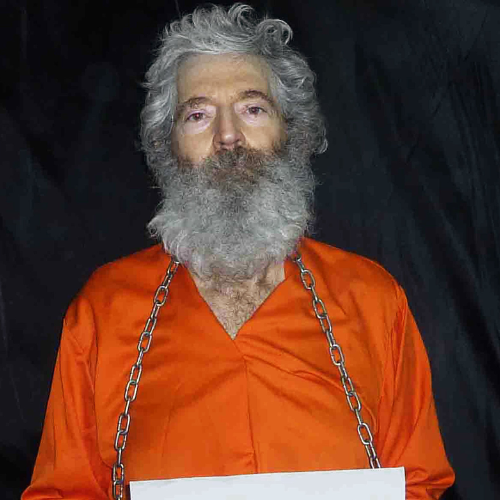The United States has taken strict action against three Iranian intelligence officers—Reza Amiri Moghadam, Gholamhossein Mohammadnia, and Taqi Daneshvar—accused of being involved in the disappearance and probable death of former FBI agent Robert Levinson. The US government announced that these officials played key roles in Levinson’s abduction and detention after he went missing under mysterious circumstances in Iran nearly two decades ago.
As part of the sanctions, all assets and properties belonging to Moghadam, Mohammadnia, and Daneshvar within the United States will be frozen. Additionally, American citizens and businesses are prohibited from engaging in any financial transactions with them. The US government has also warned that foreign individuals or entities who do business with these sanctioned officers risk being blacklisted.
The decision was made under an executive order designed to punish individuals involved in hostage-taking, criminal activities, and human rights violations. The US Treasury and State Departments issued statements condemning Iran’s actions, calling the case an example of serious human rights abuse. US Treasury Secretary Scott Bessent stated that the government would continue working to expose those responsible for Levinson’s disappearance and bring them to justice.
Shin Bet Crushes Iran-Linked Espionage Operation Led by Edward Yusupov!
Levinson’s Disappearance That Shocked the US
Robert Levinson, who had retired from the FBI, was working as a private investigator when he vanished in 2007. He was last seen on Kish Island, an Iranian-controlled territory, where he had traveled for a meeting. At the time, reports suggested he was gathering information on corruption cases. However, later investigations revealed that he may have been secretly working for the CIA, trying to collect intelligence on Iran.
For years, the Iranian government denied any involvement in Levinson’s disappearance. However, US officials believe he was taken hostage and kept in captivity for years before he likely died. The case remained one of the most mysterious disappearances involving an American citizen in recent history.
The US government previously sanctioned two other Iranian officials in December 2020, accusing them of being connected to the incident. Despite these measures, Iran has never officially confirmed what happened to Levinson or provided any clear evidence regarding his fate.
US Unleashes $15M Bounty to Crush Iran’s Illegal Weapons Pipeline in Game-Changing Strike
Sanctions to Pressure Iran Over Human Rights Violations
The latest sanctions are part of a broader US effort to hold foreign officials accountable for human rights abuses and hostage-taking. The US has repeatedly accused Iran of detaining foreign nationals for political reasons, a charge Iran denies. By imposing sanctions on Moghadam, Mohammadnia, and Daneshvar, the US aims to pressure Iranian authorities to take responsibility for past actions and prevent future cases of wrongful detention.
Sanctioning these intelligence officers means that any financial transactions they attempt to make in US dollars will be blocked. Banks and companies worldwide will also be cautious about dealing with them, fearing restrictions from the US government.
Officials from the US Treasury Department stated that Iran’s handling of the case reflects a pattern of human rights violations. The US pledged to continue investigating those involved and to use all available tools to hold them accountable.
While Iran has rejected accusations of wrongdoing, the US government insists that justice must be served. The case remains a point of tension between the two countries, with little hope of resolution in the near future.
For now, the sanctions send a strong message that those involved in acts of detention and human rights violations will face serious consequences.


